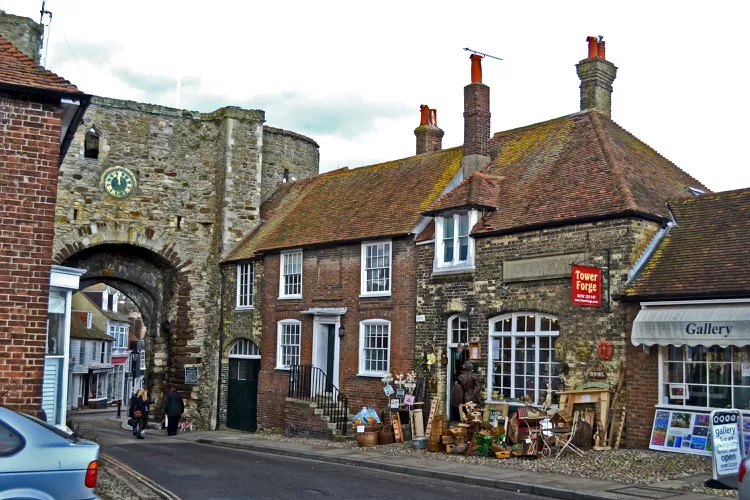Discovering Rye: A Charming Town in Southeast England
Start With a Brilliant Location
Rye is one of the prettiest towns in England’s Southeast. It attracts visitors who wish to embrace the local culture without feeling overly touristy. Despite its popularity among day-trippers, Rye manages to retain its charm and allure.
This captivating town is perched on a hill where the limestone ridge of the mainland meets the expansive Romney Marsh. Although it may feel like a quaint village, Rye’s compact medieval center offers a delightful experience.
Atop the hill stands St Mary’s Parish Church, which was initiated in the 12th century. Climbing the church tower rewards visitors with stunning views of the winding River Rother as it flows across the marshes where delectable salt marsh sheep graze. The church’s clock, installed in 1561, remains one of the oldest functioning church tower clocks in the UK.
Rye was strategically built at the confluence of three rivers, providing natural protection on three sides. This historical town was one of the two associated with the ancient Cinque Ports federation, formed in the 12th century to aid the Crown in military efforts in exchange for certain rights.
How Nature Preserved a Complete Medieval Town
:max_bytes(150000):strip_icc():format(webp)/DSC_0084-568d5b3b5f9b586a9e96b41a.jpg)
Rye’s early prosperity stemmed from its sheltered access to Rye Bay and the sea via the winding River Rother. However, maintaining access to the bay was a relentless struggle against tidal silting, which ultimately culminated in a storm in the late 1300s that severed Rye from the sea.
This isolation proved fortuitous. Previously, Rye had been vulnerable to piratical raids from France during conflicts between the English Kings and their Norman relatives. In one notorious raid in 1377, French invaders set fire to the town and stole eight church bells, only for Rye’s men to retaliate a year later and reclaim them from Normandy. For years, one of the bells was displayed in Watchbell Street as an alert for future invasions.
Today, the preserved town center, which was spared from ongoing warfare due to the shift in the river’s course, features a delightful maze of steep, cobbled streets adorned with meticulously preserved medieval houses. The picturesque streets of Mermaid Street, Watchbell Street, and Church Square showcase homes that boast renovations dating back to 1450.
Why Visit Rye Today
:max_bytes(150000):strip_icc():format(webp)/DSC_0056-568d5ad83df78ccc155fb541.jpg)
Rye is an ideal getaway for a weekend escape or as a stop during cycling or hiking tours of the stunning Romney Marshes. Moreover, it serves as a perfect spot to enjoy a warm cup of tea and cake after a day spent at the scenic dog-friendly Camber Sands.
Although Rye is no longer a deep-water port, its harbor, located about two miles south along the Rother estuary, still supports a fishing fleet. This fleet supplies fresh seafood to restaurants along the Sussex and Kent coasts, and even across the Channel into France. The town celebrates its scallop festival each February, marking the start of the delicious rye bay scallop season, which peaks during the colder months.
Around 25 antique shops populate the town, mainly found along Cinque Ports Street, alongside a variety of quaint tea shops and restaurants. The Old Bell, a charming 15th-century pub on the High Street, embodies the quintessential English pub atmosphere, offering tapas alongside traditional fare. Interestingly, its cellar and underground passages were likely once used by smugglers hiding their treasures, as Rye had a reputation as a smuggler’s haven in the 18th century.
While exploring Rye, make sure to visit one of the two locations of the Rye Castle Museum (the Ypres Tower and the East Street Museum) to delve into the town’s captivating history.




